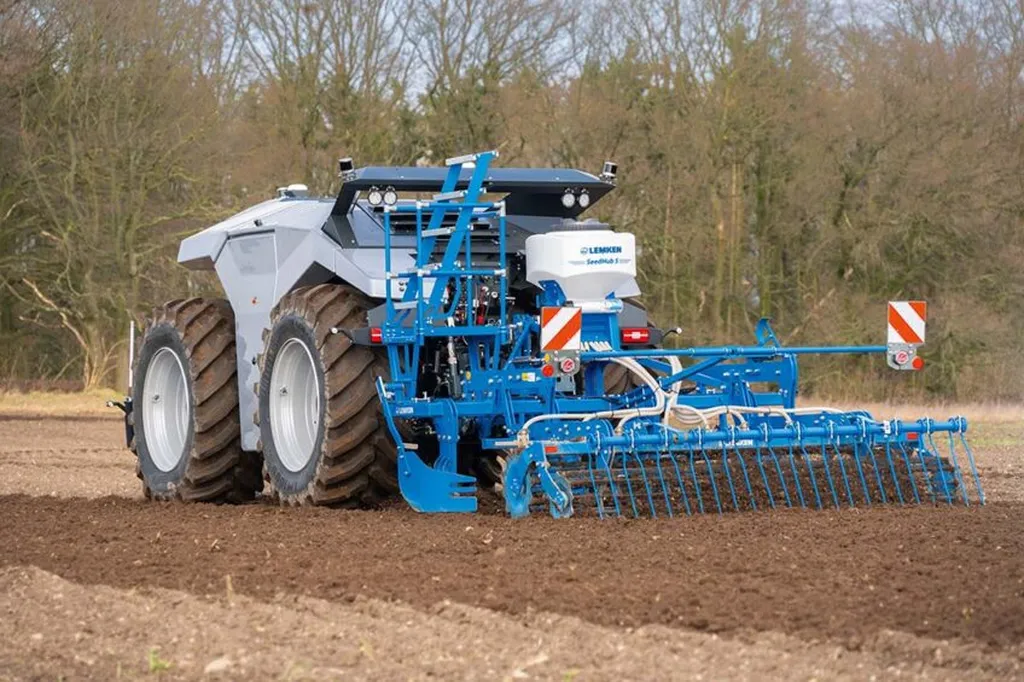In the rapidly evolving world of agricultural technology, precision and automation are becoming increasingly intertwined. A notable development in this arena is Lemken’s advancement in “smart implements,” specifically their intelligent version of the Karat cultivator. This innovation is designed to function seamlessly behind autonomous tractors or field robots, such as Lemken’s own VTE 3.0 field robot. The rationale behind such developments is clear: autonomous field operations necessitate implements and machines that can perform optimally without human supervision, monitor their own operations, and automatically intervene if issues arise.
Lemken’s intelligent Karat cultivator, showcased at the SIMA trade fair in Paris last November, is a testament to this trend. The company is collaborating with the Dutch software firm Track32, in which Lemken holds a minority stake, to develop an AI-based monitoring system for both machines and implements. Lars Heier, Lemken’s Product Manager, highlighted the potential of this system, which includes monitoring the wear of cultivator tines and detecting soil or crop residue accumulation. This technology is akin to Lemken’s iQblue connect system and can be retrofitted to existing machines, broadening its applicability and appeal.
The Smart Implement system comprises three key modules: iQblue flow control, iQblue slippage control, and iQblue tool monitoring. The iQblue flow control monitors whether the cultivator is becoming clogged, ensuring continuous and efficient operation. iQblue slippage control detects roller slippage using speed sensors, which measure the rotational speed of the rear roller. This feature is crucial for maintaining the accuracy and effectiveness of the cultivating process. Lastly, iQblue tool monitoring employs stereo cameras to automatically check the condition and alignment of the tines once the cultivator is lifted. This automated inspection ensures that the implement is always in optimal working condition, reducing downtime and maintenance costs.
Lemken’s commitment to this technology is evident in their plan to present the Karat 10/400 Smart Implement at Agritechnica 2025 in Hanover. This event will provide a platform for the company to showcase the capabilities of their Smart Implement system and its potential to revolutionize autonomous farming operations. The integration of sensors and cameras into implements is a growing trend among manufacturers, with Amazone being another notable example. Amazone tested three prototype Cenio cultivators equipped with its AutoTill system this year, one of which was trialed in the Netherlands.
The implications of these advancements are significant for the agricultural industry. As autonomous tractors and field robots become more prevalent, the need for smart implements that can operate independently and efficiently will only grow. These technologies promise to enhance precision, reduce labor costs, and improve overall farm productivity. Moreover, the ability to monitor and maintain implements remotely can lead to more sustainable farming practices by optimizing resource use and minimizing environmental impact.
In conclusion, Lemken’s development of the Karat 10/400 Smart Implement represents a significant step forward in the integration of AI and automation in agriculture. By leveraging advanced monitoring systems and smart technologies, Lemken is paving the way for more efficient, precise, and sustainable farming practices. As the agricultural industry continues to embrace these innovations, the potential for enhanced productivity and reduced environmental impact becomes increasingly attainable.

